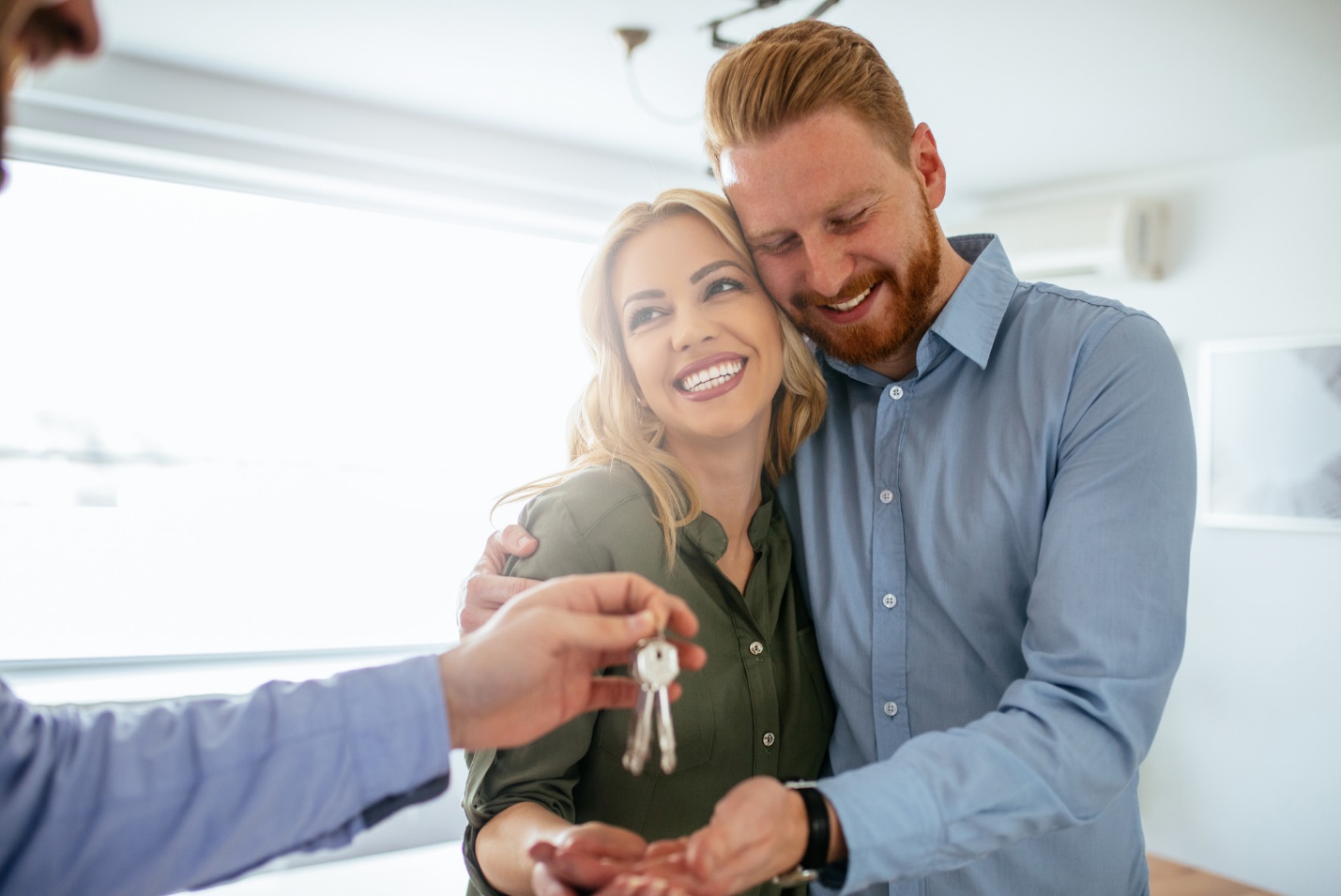While buying a home is usually the first step towards building a future, there are a few things that you should consider, especially if you are on a budget. Oftentimes, it is easy to become overwhelmed by the many decisions that go into buying a home but the ultimate question will be “what can you afford?”
By knowing how to budget for your future, you can simplify the entire buying process, eliminating unnecessary anxiety or stress. To get one step closer to owning the home of your dreams, it will be important to consider where you want to live, what is in your price range, if buying with little to no down payment will be beneficial, what your mortgage will look like, how you can improve your credit, and saving ahead of time before you move to cover any extra expenses.
Don’t be discouraged by being on a budget, instead, educate yourself on how to budget properly and use this to your advantage to buy a home with ease.
Tips for Creating a Budget
A budget is a financial planning tool that will allow you to plan for the future and track your spending habits, making it easier to buy a home and prepare for what’s ahead. No matter what your financial situation looks like, setting a budget can help you live a more comfortable life by balancing your spending habits, your expenses, and your investments.
Gather Any Financial Paperwork
Before making your budget, gather any important financial paperwork including:
- Bank statements
- Recent utility bills
- W-2’s and paystubs
- Credit card bills
- Recent receipts
- Mortgage or auto-loan statements
Calculate Your Income
When creating a budget, knowing your monthly income will be essential. Consider all sources of income you may have, whether that be a paycheck where taxes are deducted or any other outdoor sources of income.
With this information, you will be able to estimate what you are bringing in monthly and find the best way to budget successfully.
List Your Monthly Expenses
Write out a list of all of your monthly expenses, including:
- Rent
- Car payments
- Insurance
- Groceries
- Utilities
- Personal care
- Savings
- Entertainment
- Childcare
- Transportation costs
Determine Your Fixed and Variable Expenses
Fixed expenses will be any expense that you will pay the same amount for each month, while a variable expense is the type of expense that can change from month to month. By identifying what expenses are important and what could be lessened, you can get on track to budgeting better.
Total Your Income and Your Expenses
If your income is higher than all of your expenses added together, you are off to a good start. If your expenses are more than your income, you may be overspending. By figuring out your income, your expenses, and how everything adds up – you can make it easier to budget and save money over time.

What to Consider when Buying a Home on a Budget
When buying a home on a budget, there is a lot to consider. Even though you’ve got your finances taken care of and have begun saving, there are still plenty of things that you should consider when buying a home on a budget.
1. Make Sure to Look within Your Price Range
Generally speaking, pricing will determine what you buy. Don’t waste time looking at homes that are unrealistic or out of your price range, instead, use your time wisely and only look at homes that are within your budget.
2. Think About Where You Want to Live
For most homeowners, location is a top priority.
No matter what kind of budget you are working with, it will be important to make sure you are in a good location, where you feel safe and comfortable living. Even if you can’t afford your ideal neighborhood, it will be beneficial to find a location that will suit your needs, your lifestyle, and your budget too.
3. Consider Buying a Home with Little to No Down Payment
If you are on a budget, there are a couple of ways that you can buy a home with little to no down payment.
By utilizing both government and non-government home loan programs, you could receive a lower down payment option, allowing you to own the home of your dreams while maintaining your budget. Another option could also be a no-down-payment mortgage, which will help first-time buyers purchase a home with no money required to be put down at closing, except for standard closing costs.
By seeing what options are available to you and what programs you may be eligible for, you can find a way to buy a home with little to no down payment and continue budgeting while finding a house that you can turn into a home.
4. Improve Your Credit
After deciding to buy, it will be important to take extra steps to improve your credit since it will play a big role in determining your future mortgage rate.
It can be beneficial to catch up on any payments that may be behind while paying down any consumer debt that may have accumulated over time.
While you may be tempted to close a credit card after you pay it off, this can be a huge mistake. If you have had your credit card for a while, closing it may shorten your credit history, hurt your credit score, and make it even more difficult to buy a home.
5. Save Ahead of Time for Closing Costs
While you might not have a down payment, there will still be closing costs to consider when budgeting to buy a home. Plus, you will want to have some emergency funds for backup to make sure that you can afford your new mortgage payments and any other expenses you may acquire after moving into your new home.

6. Consider Your Mortgage Payment
After determining your budget, it will be a lot easier to shop for an affordable mortgage. By making a smart decision in regards to your mortgage, you will be able to balance your finances and work your expenses into your budget with ease.
The most common mortgage loan types are a fixed-interest loan and an adjustable-rate loan. A fixed interest loan will provide stability since it will never change over time while an adjustable-rate loan will adjust according to your interest rates, lessening the stability you will have financially.
Depending on your financial situation and what your priorities are when buying a home, you will need to consider which type of mortgage payment will be the right fit for you.
Simplifying the Process of Buying a House on a Budget
If you are getting ready to buy a home and take the next steps towards building a future, it can be extremely beneficial to keep a budget and make sure you can balance your finances as you search for the home of your dreams.
No matter what your financial situation looks like, there is always room to grow. By starting a budget and keeping better track of your expenses, you will be on the way to simplifying the entire process of buying a home.
By considering where you want to live, what you can afford, if little to no down payment will benefit you, what your mortgage will be, how to improve your credit, and saving ahead of time for closing closets – you will be able to buy a house on a budget and turn it into a home where you can spend time with family, friends, and loved ones.




